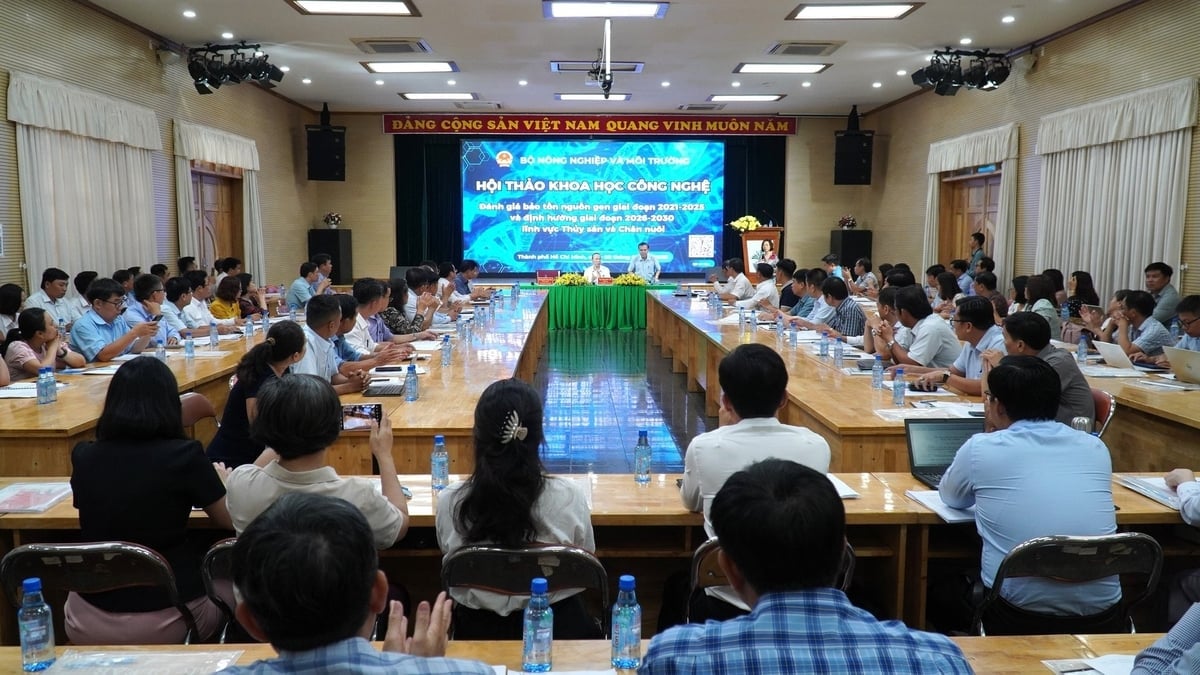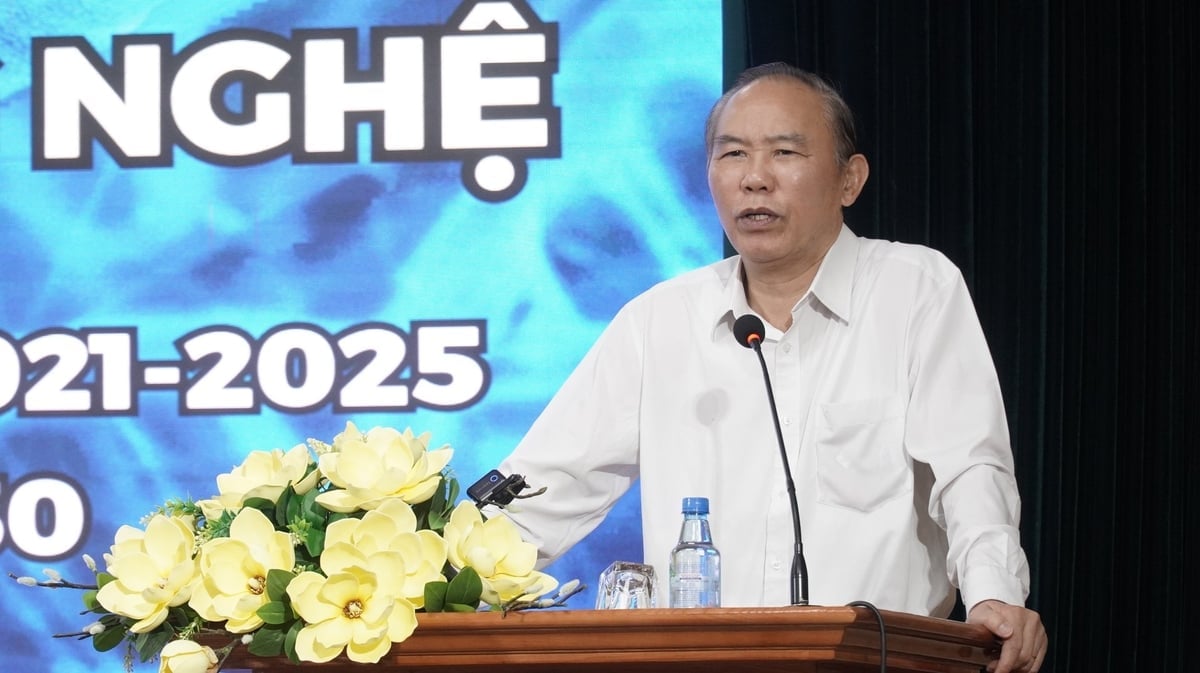December 1, 2025 | 09:52 GMT +7
December 1, 2025 | 09:52 GMT +7
Hotline: 0913.378.918
December 1, 2025 | 09:52 GMT +7
Hotline: 0913.378.918
On May 8, in Ho Chi Minh City, the Ministry of Agriculture and Environment organized a scientific and technological workshop to review the results of livestock and aquatic genetic resource conservation for the 2021-2025 period and to outline directions for the 2026-2030 phase.
The event brought together participants from research institutes, specialized centers, universities, and representatives of numerous enterprises engaged in high-tech agriculture.

The workshop involved the participation of research institutes, specialized centers, universities, and representatives from numerous enterprises operating in the field of high-tech agriculture. Photo: Tran Phi.
In his remarks at the workshop, Deputy Minister Phung Duc Tien emphasized the strategic importance of genetic resources for livestock and aquaculture in ensuring food security and fostering sustainable agricultural development. He urged relevant units to focus on completing the legal framework, accelerating digitalization, building a comprehensive genetic resource database, and promoting information sharing across regions and sectors. The Deputy Minister also stressed the need to prioritize the conservation of rare and indigenous livestock and aquatic breeds that are at risk of disappearing due to climate change and competition from imported varieties.
During the workshop, institutes and centers under the Ministry presented the outcomes of their genetic resource conservation efforts over the past five years. Key institutions, including the National Institute of Animal Science, the Central Veterinary Drug Testing Center I, the National Institute of Veterinary Research, and the Research Institute for Aquaculture No.3, have played leading roles in the collection, preservation, and utilization of valuable genetic resources. These efforts support breeding programs, vaccine production, genetic selection research, and technology transfer initiatives.

Deputy Minister Phung Duc Tien delivered a speech at the workshop. Photo: Tran Phi.
Representatives from several participating enterprises expressed appreciation for the efforts made by research institutions in maintaining, developing, and conserving genetic resources. However, they also proposed strengthening public-private partnerships and enhancing access to valuable genetic materials and original breeds for commercial production purposes. Some enterprises highlighted the difficulties they face in accessing information on genetic resources and called for the development of an open, user-friendly data system that better accommodates the private sector. In addition, they emphasized the need for the transfer of conservation and propagation technologies, as well as on-site technical support for businesses.
The workshop served as a critical preparatory step toward the development of the upcoming national program on the conservation and development of genetic resources. The future program is expected to adopt an integrated, multi-sectoral approach aimed at improving practical application and maximizing investment efficiency.
Translated by Kieu Chi

(VAN) The inevitable path forward is to reorganize production along the value chain, utilizing cooperatives as the core, enterprises as the driving force, and farmers as the central subjects.

(VAN) On November 28, Minister Tran Duc Thang, together with China's Minister of Agriculture and Rural Affairs Han Jun, chaired the 2nd meeting of the Viet Nam - China Agricultural Cooperation Committee.

(VAN) Forest carbon credits are only accepted when they ensure absolute environmental integrity, additionality, permanence, and transparency.

(VAN) Viet Nam partners with Beijing on controlling air pollution, cross-regional management, high-tech monitoring and relocating polluting facilities.

(VAN) With a USD 50 million investment, Australia is partnering with Viet Nam to operate its first public electric bus fleet and develop a nationwide EV charging network.

(VAN) On November 28, in Beijing, Minister Tran Duc Thang met Minister of Ecology and Environment of China Huang Runqiu, to share experience on environmental protection.
/2025/11/28/0950-2-120557_751.jpg)
(VAN) The recent flood spell in the South Central region clearly reflects the characteristics of natural disasters in 2025, which are compound, prolonged, and amplified.